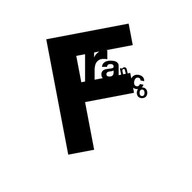Between my gloved fingers, I held definitive proof of their existence. In my hand, I cradled the coding to our next evolutionary step. It was the type of discovery that won awards, sparked controversy and even ignited riots in city streets worlds away. It was the sort of evidence that threatened to debunk our social order and crack open the potential for myth to not merely be a form of expression, but to be an accurate representation of our world. The DNA parser thrummed beneath dim laboratory lights, its mechanisms whirring like a great Frankensteinian beast and, for a moment, a strange sense of peace invaded the hollow in my chest. Still, I could not bring myself to splice the hair or pick up a pipette.
His hair, I reminded myself.
My fingers, though coated in latex now, still twitched with the reminder of their exploration through his dark, curly strands, my back arching slightly as the ghost of our lovemaking from hours ago shivered over my skin. A pang vibrated through me and it was almost as though I’d already betrayed him.
“Carly,” he had whispered in my ear. “It’s time we start to live again. The whole of us.”
I had rolled away from him, my back to him, and I wanted to tell him that I’d never felt so disturbed or unbound as I had in those past few weeks when he’d begun to change. I knew the catalyst; I lived for cause and effect relationships and it had not taken long for me to figure out what it was that started his chain reaction and my own intersections.
Encased in a small box, it had arrived corded with string and held together by tape tucked under brown paper folds. I knew who had sent it before I even glanced at the swooping handwriting. I hadn’t spoken to her since my wedding. And yet, as I stared at the package, which had arrived exactly 24 days after my thirtieth birthday, her voice entered my mind.
Carina, you need to call your mother. This is not how you treat family.
A heavy Russian burr harshened her voice, especially the way she said my given name. She’d never called me Carly even though I’d asked it of her. Remember who you are and where you come from. Be all of yourself at once. She’d said the words with her arms spread and open, her curly blond hair rolling down her back like a flower child. But I’d been born in Poughkeepsie and I didn’t speak any Russian, nor had I ever been to St. Petersburg. Take risks, she’d told me, but I was too busy keeping track of our bills, helping her scrounge for loose change on abandoned railroad tracks, and accepting extra shifts at the neighborhood deli to feed us both. Because of her nonsense, I learned to control myself, to find the adult within the child. Even now as I thought of her, of her flabby arms reaching out to encircle me and corral me, I flinched.
Bent on disposing the box, I made for the trash. My husband regarded me over his newspaper comics. A five o’clock shadow shaded his chin even though it was barely noon that Sunday.
“Isn’t that from your mom? It came yesterday,” he said.
I shrugged.
“Aren’t you going to open it?”
My fingers clamped around the packaging. “It’s probably a new pair of stockings and an orange,” I said. It was what she gave me every year, and I had enough money to buy all the damn stockings and oranges I very well pleased. Because of her, my skin crawled at the sight of them—which made wearing dresses and skirts in the winter months difficult, if not impossible.
“You open it,” I said, and extended it toward him. He set the comics down and took it from me, his calloused fingers grazing mine. I watched as he carefully peeled the paper, making sure not to create any unnecessary gashes in the material.
He lifted off the cover and dug through old newspaper crinkles padding the contents. His brow furrowed and his hand surfaced, a small object in his overlarge palm. I bent close, enough to smell the scent of hewn wood in his hair. He offered it to me.
It was a pear-shaped wooden container, the image of a woman painted across the lacquered surface. The bottom was flat to accommodate display. The word, though foreign and buried within the same place I’d filed away my mother, breached my lips.
“A Matryoshka doll,” I said.
“A nesting doll, right?” he translated and I nodded. He was a carpenter and so I assumed, perhaps insensitively, that he should have heard of them before. But this was decorative woodworking rather than woodworking of substance.
The image on the front of the doll could have been my mother in caricature, with blue fishbowl eyes and pink lips set unsmiling. She was a buxom lady with a thick waist wrapped in a blue and white apron. I turned it over in my palm. The insides rattled.
“Aren’t you going to open it?” he asked.
“You said that already,” I replied, smiling.
He rolled his eyes. “I meant the doll. Aren’t you going to look at the ones inside it?” He sounded almost childish and, though it was one of the things I loved about him, when it came to my mother, I had little patience.
“It’s just a toy, trash really. Hollow inside. Makes you think it contains something, magic maybe, but all it holds is a lame copy,” I said in an offhand way. The hurt expression on my husband’s face said otherwise.
She had never given anything of worth to me before, so why would this doll be any different? It was a strange deviation from her norm. Perhaps the tangled web of her mind had taken over and forced her to throw up her hands in a final refusal to unknot her thoughts and revert to the girl she’d left in Russia. Unlike her, I kept the pieces of my life so divorced that there was little worry of such reversion.
My husband shrugged, as if saying, I just don’t get you sometimes, and deposited the newspaper and empty box into the recycling bin. I approached my desk and tucked the doll in the drawer. Its blue, wooden eyes cut at me as I confined it inside.
But he didn’t forget it. Perhaps even while we continued on our lives, the catalyzer set in and began to change him. I worked, I returned home, we had dinner at the exact same time every day on a rotating schedule of fresh produce and homemade meals. Afterwards, I read romance novels while he flicked between the sports channel and Jeopardy!
We’d met through a friend of mine at a bar on some too-cold fall evening. I hadn’t wanted to meet him. I’d sworn, as I always did after a slew of poor first dates, that I was finished with men and that they’d never truly been interested in me. Most of my relationships ended in a power struggle: intimidated by my job and degree, men had always managed to turn our love into a competition – one I knew they had no right to win. My husband was not like that. He deferred to me even though he possessed a sharp sort of raw intelligence most could only dream about. He’d proposed to me on a nature hike in New Hampshire’s White Mountains, his foot enclosed by the aged rings of a weather-beaten stump as he descended to one knee.
“You’re an observer,” he’d said as we began our trek down the nature paths.
“Then I suppose you’re the observed,” I teased.
His arms encircled me, my back crushed against his chest as our lips met underneath the burnished red canopy of almost-Fall. I felt whole in a way I never had before.
After the package arrived, I found my own routine changing. Under the blanket of night, I slipped from between our bed sheets and tiptoed back to my work desk. Hinges creaked as I opened the drawer and sat there, half-lit streaks of moonlight scarring my palms as I stared at the doll. I never split open its perfect meridian, merely relocked the drawer, determined never to admit that the doll had become a strange talisman. During those moments in the darkness I let a strange sense of unfounded loneliness unfold and consume me.
Perhaps he’d seen me caressing the lacquered frame, perhaps it was his way of daring me to move beyond myself (or at least the self he saw when I came home from the lab and washed ghostly fragments of DNA off of my skin, afraid I’d become like those I observed). Because one day, when I returned from work, I made for the kitchen and saw them.
My heart stuttered in my chest.
Lined up, in a row, my mother’s nesting dolls peered at me.
There were seven, each different than the other. Somehow, I’d forgotten to breathe. The doll I’d had as a girl (yes, I’d been guilty of opening my first nesting doll once), had contained identical miniature replicas of the larger maiden, each with the same eyes and hair and clothing, indistinguishable except for their size. But these dolls were different. The first one had blue eyes, the second had grey, the third had green, the fourth had hazel, the fifth pair was colored a dark brown and the last two had eyes like black pitch. They varied in skin tone and ethnicity; some had blemishes, other did not. Their outfits were suspect as well; I thought it a bad jape my mother had commissioned. They included a scientist, a pinup, and a policewoman.
I didn’t realize my hand was shaking until I reached out to grasp one. They’d been deliberately arranged. It wasn’t something my husband would do, I was sure. I knew him. I knew that he chewed at his hangnails and liked to listen to soft rock in the car. He took his coffee with cream and sugar and he didn’t like any cheese except sharp cheddar. I had fallen in love with his disarming sense of humor, a fact I had told him approximately three times in our relationship.
But this was beyond the equation. He should have known the way I felt about my mother; I must have told him. I couldn’t remember the exact conversation but I most definitely informed him of the nature of our relationship when he wanted to invite her to the wedding.
“We don’t talk. We never did. It would be strange to send an invitation.”
One by one, trying not to touch too much of their surface area, I stacked and slipped them back into their respective shells until the equators realigned and they became one body and one capsule again. Once more, I set them back inside their drawer, refusing to meet that first woman’s eyes. My mother’s eyes.
I smoothed the hair behind my ears. At dinner, I said nothing of it. My first mistake. I wasn’t sure how much time passed between that first nesting doll surfacing and the next; it could have been days or weeks, but it was soon summer. That summer.
The summer I found out his secret. The summer that his life became a headline of my yet-unpublished study. The summer that he transformed from my husband into an observed entity (maybe he had always been so).
Salena Casha’s work has appeared in over 30 publications. Her first three picture books were published by MeeGenius Books! Obsessed with Chinese and Japanese mythology, Salena uses a standing desk and drip coffee while she writes to stay awake.













